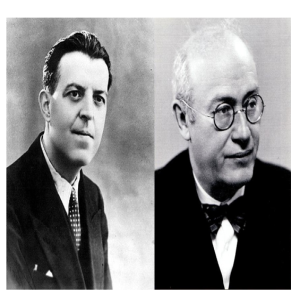
Mobilized in 1939 as an artillery lieutenant, taken prisoner in June 1940, he spent five years in the Nienburg, Lower Saxony/Weser Oflag. He organized introductory lectures on the history of music from its origins to the present day, to which were added over the months a course on harmony and counterpoint, a course on the fugue, twenty lessons on musical aesthetics, and the history of the symphony. Demonstrating passionate self-denial, he wanted to complete this theoretical teaching and instill in his companions of misfortune a love of music by conducting and commenting on eighteen symphonic concerts.. Both the musicians of the orchestra and the singers of the choir were amateurs, with instruments of very poor quality, but Goué's enthusiasm won them all over.
After being interned and tortured at Pankrác prison for two years (1943–1945) Karel was sent to Theresienstadt prison. The conditions in the prison were dire and he became ill with dysentery and pneumonia.[1] SS- Oberscharführer Stefan Rojko sent all ill prisoners outside in freezing cold to disinfect the cell. As a result, Karel and 8 other prisoners died on 6 March 1945.
More Episodes
 2024-09-21
2024-09-21
 3
3
 2024-09-19
2024-09-19
 28
28
 2024-09-17
2024-09-17
 2
2
 2024-09-10
2024-09-10
 2024-09-09
2024-09-09
 2
2
Create your
podcast in
minutes
- Full-featured podcast site
- Unlimited storage and bandwidth
- Comprehensive podcast stats
- Distribute to Apple Podcasts, Spotify, and more
- Make money with your podcast
It is Free
- Privacy Policy
- Cookie Policy
- Terms of Use
- Consent Preferences
- Copyright © 2015-2024 Podbean.com






